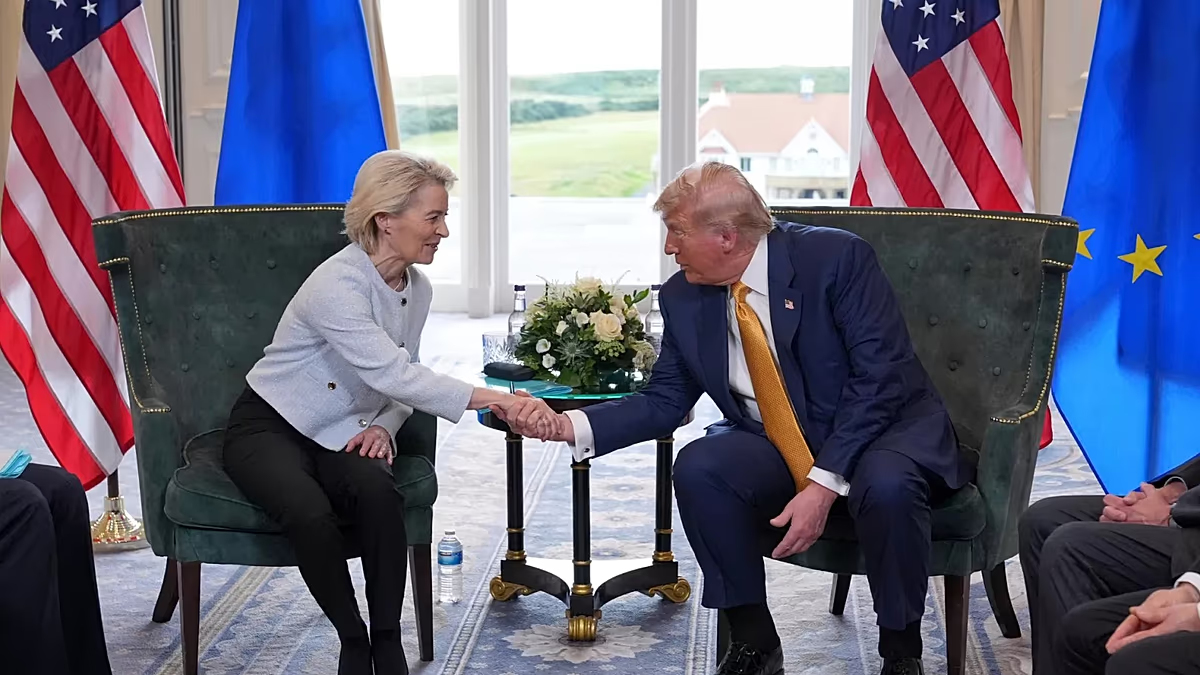Exclusive: EU lawmakers freeze EU-US trade deal after Trump tariff threat
European lawmakers agreed on Wednesday to freeze the EU-US trade deal struck last summer, Euronews has learned, ratcheting up pressure on transatlantic relations after US President Donald Trump threatened fresh tariffs on several European countries who reject his insistence that the US should take over Greenland.
The agreement was reached last year after weeks of trade tensions triggered by the aggressive tariff policy Trump rolled out following his return to power. While a political agreement was reached in the summer, the deal still required formal implementation by the European Parliament.
Lead MEPs handling the file met on Wednesday afternoon and decided to suspend the process, officially postponing a vote that had been scheduled for next week in the Parliament’s Committee on International Trade.
Tensions intensified after Trump said on social media he would impose a 10% tariff from February on Denmark, Sweden, Norway, France, Germany, the Netherlands, Finland and the United Kingdom until “a deal is reached for the complete and total purchase of Greenland”. The rate would rise to 25% by June should no agreement be reached.
MEPs view the threat as a breach of the EU-US deal, which already imposes 15% US tariffs on EU goods while committing the bloc to cut its own tariffs on US industrial imports to 0%.
Lawmakers had been preparing amendments to the deal in the coming days, with many already describing it as unbalanced in the US’s favour.
On Saturday, Bernd Lange, the German MEP who chairs the Parliament’s trade committee, said work on the agreement should be suspended – a position adopted the same day by leaders of the Parliament’s main political groups, the EPP, S&D and Renew.
EU leaders will meet on Thursday night to prepare the bloc’s response to Trump’s threats, which many see as a form of blackmail.
This is a developing story.
